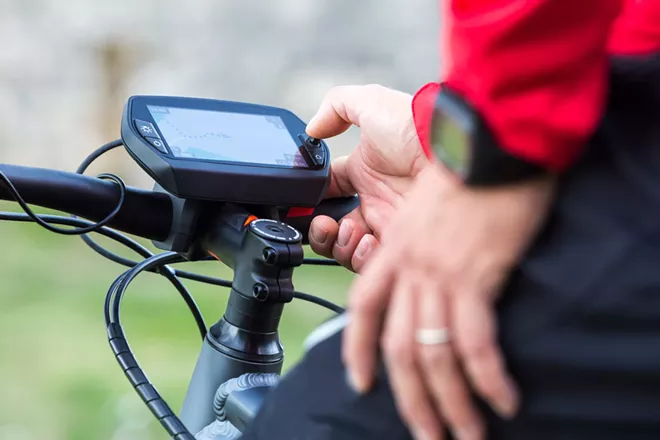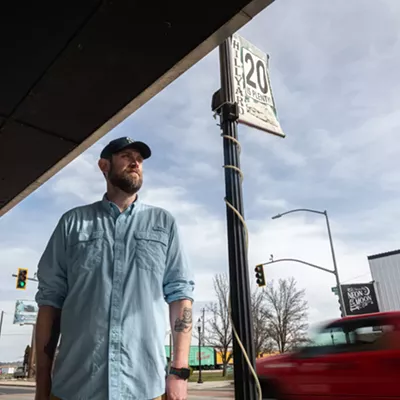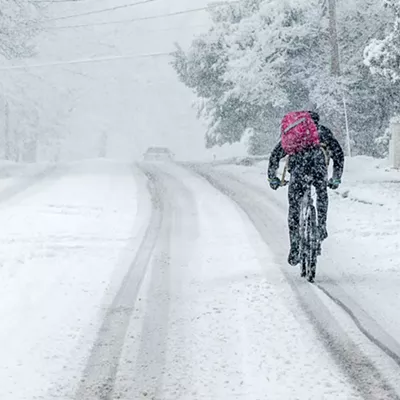If you don't know it by now, you should: Transportation is the largest source of greenhouse gas emissions in the U.S. Most of that comes from passenger vehicles, and the vast majority of car trips — 76 percent — are done by one person alone in a 4,000-pound vehicle.
A new federal bill may help convince Americans to finally swap their car keys for a bike helmet.
The Electric Bicycle Incentive Kickstart for the Environment (EBIKE) Act was introduced last month and, if passed, would cover 30 percent — up to $1,500 — of the purchase price in refundable tax credits for new pedal-assist bicycles.
A similar bill was introduced in 2021 and was part of the Inflation Reduction Act before being stripped out in final negotiations in the Senate. Now, though, the bill looks like it has a better chance of being approved, thanks to new support from bicycle and environmental groups that gave it tepid backing last time around.
"There is a much larger number of national organizations that are behind the EBIKE Act this time around, and that has a lot to do with the growth in their popularity in the last few years," says Noa Banayan, director of federal affairs at the nonprofit advocacy group People for Bikes.
For years, groups like the Sierra Club and Environment America embraced national policy supporting electric cars and better gas mileage, but they only recently shifted toward lobbying for less driving and getting people out of their cars, electric or otherwise.
That shift in support is due to the obvious success of similar rebate programs around the country. More than 100 state and local governments have begun offering e-bike discount programs, according to research from Portland State University.
Last year, Denver launched a program to give $400 to any resident, and $1,200 to low-income residents, purchasing an e-bike. More than 5,000 people have so far redeemed the e-bike voucher. According to the city's Office of Climate Action, Sustainability and Resiliency, people who took the rebate rode an average of 26 miles each week, replacing 3.4 car round trips as well as 100,000 vehicle miles traveled each week.
Despite the clear local advantages — e-bikes make it much easier to climb the South Hill, for instance, or ride from the Valley to downtown — Spokane and Washington state have no similar programs. Yet. The state Senate transportation budget this session includes $3 million for an e-bike point-of-sale rebate.
While a number of electric utilities around the U.S. offer rebates, no local utilities do. Avista's manager of electric transportation, Rendall Farley, says he's "monitoring micro mobility." But he says that Avista is more focused on making sure its grid can handle the load as cars and trucks switch from gas to electric.
This shift to electric vehicles may help the environment, but even that's questionable. Behind transportation, the second-largest contributor to U.S. greenhouse gas emissions is electric power, according to the Environmental Protection Agency.
The answer, says Banayan, is the e-bike.
"They make things efficient, and they bring people joy," she says. "The climate impact is a bonus, but when people ride bikes, it's truly — wow — transportation is joyful." ♦


























